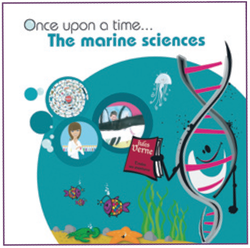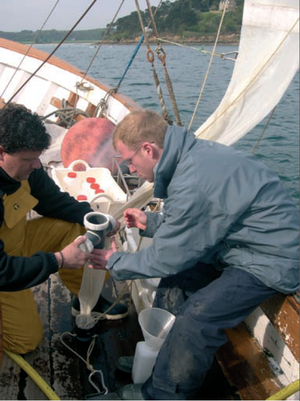The Ocean provides a social and cultural space
Contents
SOCIAL RESPONSIBILITY
The intrinsic health of the ocean is intimately linked to the well being of society. The functioning of coastal and island communities depends on shipping, fishing, aquaculture, and tourism. Rural coastal communities are particularly vulnerable as they enter into direct competition with industrial trawlers and megatourism developments. Rising sea levels encroach gradually but steadily on low lying land. Changing climate patterns directly affect the need for shelter and the opportunities for aquaculture. Twenty percent of animal protein originates from marine sources, and in some areas it is the main dietary source. Any change due to overfishing or climate variation is likely to create challenges. Marine biological sciences, including marine genomics, contribute to the understanding, monitoring, exploitation and management of the ocean.
TRAINING AND EDUCATION – OUR FUTURE
Academia, schools and the public
Training and education in ocean sciences and the DNA blueprint of organisms and communities must be embedded in academia, schools and the public. It is the most crucial factor in educating and convincing people how significant the ocean is for man’s life. Teachers, public communicators and NGO personnel trained at academic institutions already relay marine knowledge to the public through teaching pupils in a class setting, during summer camps and after school activities, through preparing news articles, movies, journal texts, and communicating with politicians. Without their effort the ocean would not receive the attention it has. But is there sufficient attention?
Marine scientists wanted
Scientific research, education and management require highly trained personnel at the vocational, technical, Bachelor, Master and PhD level. These people work in labs, at sea, in private companies and government agencies. European institutions specializing in marine sciences are covering all seas and environments. However, these numbers are considered insufficient to tackle global issues of sustainability. Marine Genomic Europe bundles a sizeable percentage of the research community involving some 45 laboratories, 118 teams and 600 researchers. Whereas this may seem large, taken with her sister EU marine networks MarBEF and EurOceans, the total is still under 2000 researchers covering all of European ocean sciences.
ANTHROPOGENIC IMPACT AND COASTAL ZONE MANAGEMENT
Detecting and monitoring
Man’s impact on the oceans has been increasingly detectable. Effects are measurable at the level of pollution, infections, overfishing and poor returns in aquaculture. The impact of an estimated 40% of the global population living within close range (50 km) of the coast does not go unnoticed any longer. Although long considered the perfect dumpsite, oceanic ecosystems show signs of environmental fatigue through nutrient enrichment, climate modification, hydrocarbon spillage, the inclusion of novel chemicals in the food chain, food chain modification through selective cropping of predatory fishes and the (un)wanted transplantation of organisms (exotic or invasive species). Detecting and monitoring their impact is essential to make political measures realistic for a sustainable blue planet. Most often the initial anthropogenic impact is subtle and hard to detect as a “white” signal among the environmental noise, and hence hard to measure. Marine genomics is presently involved in monitoring of anthropogenic impacts in many ways including:
- Development of microbial systems for oil and waste mitigation
- Pollution monitoring
- Detection and monitoring of alien invasive species
- Overfishing
- Monitoring of the effect of global change on ecosystem
functioning
Ocean management
Coastal zone and open ocean management has become key to the sustainable use and exploitation of the ocean. The UN Convention on the Law of the Sea (UNCLOS) has set a standard among all nations on how to access, exploit and maintain the “commons of the ocean”. Slowly a consensus is building on the design of Marine Protected Areas (MPA), despite the numerous scientific knowledge gaps [1]. Unlike on land, MPAs will have to be contiguous and large (in the order of 10 to 30 % of the total surface) if they are to have any effect.[2]
References
- ↑ SALE, P.F., COWEN, R.K., DANILOWICZ, B.S., et al. (2005). Critical science gaps impede use of no-take fishery reserves. Trends in Ecology & Evolution 20, 74-80
- ↑ Volckaert F.A.M., Barbier M., Canário A.V.M., Clark M.S., Glöckner F.O., Olsen J.L., Wesnigk J., Boyen C. (2008) Marine Genomics Europe. The European flagship of marine sciences for a sustainable future. 38 pp. Marine Genomics Europe, EC-FP6 GOCE-CT-2004-505403

